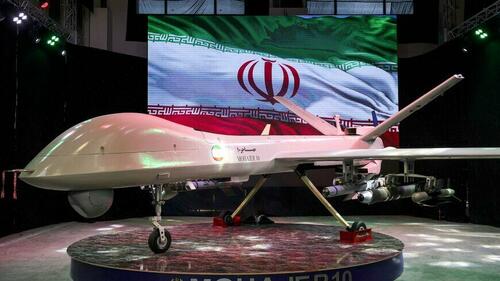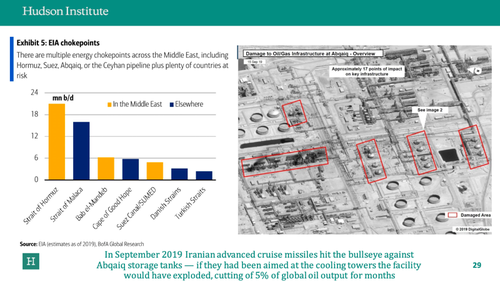How Will Tehran Respond To Israel? Could Iranian Stealth Drones Target Critical Oil Infrastructure?
Iran’s foreign minister said on Monday that Washington military leaders gave Israel the “green light” to conduct a missile strike on its consulate building complex in Damascus last week that killed several of its top military officials, including two generals.
Hossein Amirabdollahian said, “Our response to the Zionist regime and its punishment is certain.” He continued that “conveying the message of our country to the United States as a full-fledged support of the Zionist regime and direct response for its crimes and actions.”
Addressing those warnings, in the US, National Security Council Strategic Communicators Coordinator John Kirby stated at a press conference on Monday that he couldn’t touch on the specific intelligence matters but pointed out that “the Israeli government could count on the United States’ support for any self-defense needs against threats directly by Iran to Israel, threats that Iran has made public.”
As a possible military response by Tehran nears, Kirby also warned US troops across the Middle East, especially in Iraq and Syria, face mounting threats from drone and missile attacks.
The question on everyone’s mind in the intel community is how Iran will respond. Tehran has many options, but which will it use?
A Bloomberg report on Monday titled “Iran’s Better, Stealthier Drones Are Remaking Global Warfare” reminded us how Iran’s mastery of low-tech drone warfare poses a significant threat to US military bases and oil infrastructure in the Middle East.
Earlier this year, three American troops were killed, and more than three dozen were injured by an Iranian-designed kamikaze drone at the Tower 22 US military base in Jordan.
“The last two years have been a period of hyper-acceleration of new tactics and techniques for Iran’s employment of drones,” Matthew McInnis, a Pentagon intelligence officer, told Bloomberg.
In February, Iran’s Aerospace Force Commander Brig. Gen. Amir Ali Hajizadeh announced that Tehran-made stealth drones could target any moving vessel and critical infrastructure at great ranges.
Hajizadeh claimed that Iran is one of the world’s leading powers in defense, including drone and missile technologies.
“We have now reached a point where the terrorist military of the United States openly admits that it is not seeking a conflict with the Islamic Republic because it is unable to resist the Iranian defense prowess,” he said.
Iran’s drones are becoming stealthier, and that has the US intel community up at night. Bloomberg pointed out, “The one that hit Tower 22 in January penetrated US defenses by shadowing an American drone that was landing there.”
A spokesman for the US Department of Defense recently said Iran’s procurement, development, and proliferation of drones are “an increasing threat to international peace and security.” They noted that Defense Secretary Lloyd Austin set up a panel of senior leaders last month to figure out “this urgent operational challenge.”
Iran’s stealth drone technology has likely advanced significantly since Yemen’s Houthi rebels, backed by Tehran, launched a complex drone swarm attack on the world’s largest oil processing facility in Saudi Arabia in 2019.
The question, again, is how Tehran will respond to Israel/the US. There are mounting concerns Iran or Iran-backed proxy groups could use suicide stealth drones against critical oil infrastructure, such as the Abqaiq oil processing facility in Saudi Arabia. Brent crude would immediately spike over the $100 a barrel mark if that facility was hit. And it would be viewed as an indirect attack on the US, as we penned in a note titled “The Weaponization Of Crude Could Trigger The Next Financial Shock.”
Iran has stealth drone technology, and we’re sure they’re not just looking at pretty drones in a giant underground warehouse. They will use it. The question the intel community has is how Tehran will respond to Israel.
Tick, tock, tick, tock…
Tyler Durden
Tue, 04/09/2024 – 23:20
via ZeroHedge News https://ift.tt/1HbMOim Tyler Durden

